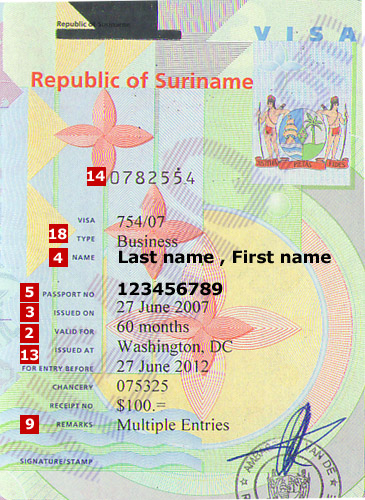Suriname Embassy list in New Zealand
Need help?Chat with us
Why Trip Registration at the Suriname Embassy is Important
Registering your trip with the Suriname Embassy is a crucial step for ensuring your safety while traveling. It provides a vital line of communication between you and the embassy, particularly during emergencies. In the event of natural disasters, such as earthquakes or floods, embassy registration can facilitate prompt assistance. The embassy can quickly locate registered travelers, providing critical support and ensuring their safety.
Moreover, in times of political unrest, those registered may receive timely updates on local security conditions, enabling them to make informed decisions about their safety. Likewise, if travelers experience medical emergencies, the embassy can coordinate necessary medical assistance and provide crucial support. Thus, registering your trip not only enhances personal safety but also allows the Suriname Embassy to safeguard the well-being of its citizens abroad.
Suriname Embassy FAQs
Can the Suriname embassy assist in legal issues abroad?
Yes, the Suriname embassy can provide limited assistance in legal matters, including guidance on local laws and connecting you with local legal resources.
What should I do if I lose my Suriname passport in New Zealand?
If you lose your Suriname passport, report the loss to the nearest Suriname embassy or consulate as soon as possible. They will guide you through the process of obtaining a replacement.
How can the embassy help if I’m detained abroad?
The embassy can assist by ensuring you receive fair treatment, providing information about local legal resources, and notifying your family or legal representatives regarding your situation.
Does the embassy offer travel health information?
Yes, the Suriname embassy can provide health advisories, including vaccination requirements and medical facilities available in New Zealand or other countries.
Services Provided by Suriname Embassies in New Zealand
Passport Services
- Issuance of new passports
- Renewal of existing passports
- Replacement of lost or stolen passports
Visa Issuance for Foreign Nationals
- Visa applications for those wishing to visit Suriname
- Information on visa requirements and processes
Assistance in Legal or Medical Emergencies
- Guidance on local legal services
- Coordination for medical assistance in emergencies
Travel Alerts and Safety Updates
- Information regarding travel safety and security
- Alerts on natural disasters or political unrest
Support for Nationals Detained Abroad
- Assistance for citizens detained in foreign countries
- Provision of necessary legal contacts and information
Summarized Diplomatic Presence
The Suriname diplomatic presence in New Zealand is represented primarily through its embassy, located in Wellington. This embassy plays a key role in fostering bilateral relations between Suriname and New Zealand. Its primary functions include providing consular services to Surinamese nationals, facilitating trade relations, and promoting cultural exchanges. The embassy acts as a crucial channel for communication and coordination, ensuring that both nations engage effectively on various international matters. By establishing such a presence, Suriname strengthens its international ties and enhances cooperation in areas of mutual interest.
